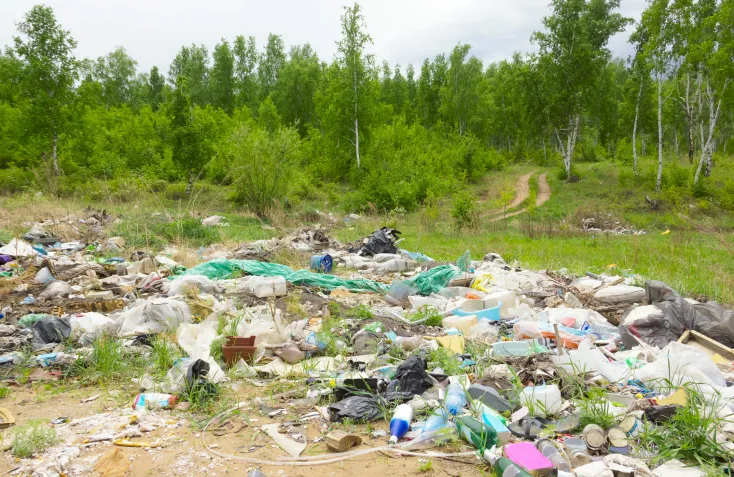
Comfy sofas, flatscreen TVs and wall-to-wall carpets are all part of modern life and it’s hard for many of us to imagine our homes without them. The problem comes when these household items become old, damaged or unwanted and are just dumped in fields or ditches by unthinking fly tippers.
Along with broken fridges, buckled bicycle wheels, leaky car batteries and all sorts of DIY waste, rubbish like this is a huge headache for farmers all over the country. When junk is dumped on public land, such as roads and parks, the local authority or the Environment Agency takes responsibility for clearing it up, but if it happens on private land, then it’s the landowner who foots the bill. The consequences can be extremely serious.
When I was in Ireland a few years ago, I heard about incidents of people filtering agricultural ‘red’ diesel through cat litter. The idea was to take the dye out of this cheaper fuel so the criminals could pass it off as regular diesel. It led to great piles of pink-stained cat litter full of diesel being dumped in forests and on farms. Of course, when it started raining, greasy fuel began leaking all over the ground, which was almost impossible to clean up. Apart from being a fire hazard, it caused enormous inconvenience, environmental damage and potential health risks for animals and humans.
Fly-tipping hotspots
In some areas, fly tipping is on the rise. In the north-east, there was a 20 percent increase in cases during 2011. It’s a similar picture in Somerset, where reported incidents went up by around a third last year after the county council cut opening times and introduced charges at four of its recycling centres. So I was surprised to discover that, despite the concerns, the latest official figures from Defra state that, nationally, fly tipping decreased in 2010-11 compared with the previous year.
Illegal dumping of waste carries a fine of up to £50,000 and a maximum prison sentence of five years. There are also severe penalties for anyone who allows serious littering on their land or owns a vehicle
used by fly tippers.
I’m no criminal psychologist, so I don’t know if stiffer penalties would reduce the problem further. But perhaps rural communities could be more vigilant when it comes to spotting fly tippers. There are lots of eyes and ears in the countryside, with schemes such as Neighbourhood Watch, Farm Watch and Horse Watch all well established. So working together to help fight rural crime is nothing new, and fly tipping could easily be next on the list. If you see a vehicle loaded with rubbish being driven suspiciously, report it.
Meanwhile, there’s another problem which, while not illegal, is every bit as devastating as fly tipping. I call it sky litter. It’s the remains of Chinese lanterns and helium balloons that are sent into the air with the greatest of intentions, but which can cause huge problems when they land.
As the saying goes, what goes up must come down. Wire frames and deflated balloons can be fatal if they’re eaten by livestock, while the candles inside Chinese lanterns have been blamed for thatch, barn and haystack fires. If you drove along and threw 100 carrier bags or a dozen lighted candles out of your car window, people would think you were very odd indeed. Yet it’s effectively what happens an hour or two after these aerial displays. The NFU and the Women’s Institute have both expressed concerns, and I’d add my voice by urging anyone who wants to support a local event or a worthwhile charity to give lanterns and balloons a miss this summer.
